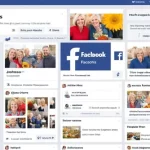In 2014, Facebook made a big move by buying the mobile messaging service WhatsApp for $21.8 billion. This deal made a lot of people talk. But why did the regulators say yes, even with worries about Facebook getting too big?
This was Facebook’s biggest buy ever. It changed the social media world a lot.
Facebook paid $19 billion, then $21.8 billion, for WhatsApp. This was surprising because WhatsApp didn’t make money from ads and was free for a year. But, the regulators saw WhatsApp as a big chance for Facebook to grow.
Facebook’s Massive Acquisition of the Mobile Messaging Service WhatsApp
In 2014, Facebook bought WhatsApp for a huge $21.8 billion. This was a big deal, bigger than what Google, Microsoft, or Apple had ever done before. It showed how much value Facebook saw in WhatsApp’s growing user base and its future potential.
Facebook’s Strategic Move to Expand its Reach
When Facebook bought WhatsApp, it had over 500 million users worldwide. This made it a top messaging app. Facebook wanted to use WhatsApp’s large user base to grow its own platform. This move helped Facebook become even more powerful in social media and communication.
WhatsApp’s Rapid Growth and User Engagement
WhatsApp was growing fast, especially in places like Brazil, India, Mexico, and Russia. It was simple, private, and great for messaging, voice recordings, and videos. People loved it, sending billions of messages and sharing photos every day.
The $21.8 billion deal showed how much Facebook valued WhatsApp. It was a smart move to keep Facebook leading in mobile messaging. This deal was a big step for Facebook to stay ahead in the fast-changing tech world.
The Regulatory Approval Process: Antitrust Concerns and Competitive Landscape
The process of approving Facebook’s buyout of WhatsApp was closely watched by antitrust groups. The Federal Trade Commission (FTC) in the U.S. and the European Union (EU) were key players. They looked into the deal’s possible effects on competition and consumer choices in messaging.
Both the FTC and EU teams deeply examined the deal. They looked at how it would change the competitive scene and its effects on the market. They checked if Facebook’s big size would limit choices for users and slow down new ideas in messaging.
In the end, the deal got the green light but with some rules. The FTC and EU made sure Facebook kept WhatsApp’s privacy and user experience the same. This way, users could still pick from many messaging apps. It was a move to let the deal happen while protecting users and the market.
Why was Facebook’s Acquisition of WhatsApp for $21.8B Approved?
Facebook bought WhatsApp for $21.8 billion, a big deal that made people worry about antitrust issues. But, after looking closely, regulators said it was okay. They looked at how it would affect consumers and competition.
Addressing Potential Monopolistic Behavior
People were worried about Facebook getting too powerful in social media and messaging. They thought the deal could make the market less competitive. But, after checking, officials found it wouldn’t hurt competition too much.
Evaluating the Impact on Consumer Welfare
Regulators looked at how the deal could help consumers. They thought combining WhatsApp and Facebook would make things better for users. They also made sure Facebook would keep protecting user privacy and innovating.
The deal got the green light because it balanced concerns about competition with the good it could do. It shows how tricky it is for regulators to decide on big tech deals. They have to think about many things.
The Benefits of the Acquisition for Facebook and WhatsApp Users
Facebook’s buy of WhatsApp has greatly helped both Facebook and WhatsApp users. It has made communication smoother by linking the messaging service with its social network. This has made using Facebook and WhatsApp together better for everyone.
Enhancing User Experience and Integrating Services
Facebook and WhatsApp now work together better, offering more to their users. This has made talking and sharing easier and more fun. It also opens new ways to make money through ads and other services.
This deal has let Facebook improve its messaging and social features. Users get to use the latest technology that makes their social time better. Facebook is now a top name in mobile messaging and social media.
The Future of Mobile Messaging and Social Media Integration
The Facebook-WhatsApp deal is part of a big trend in the mobile world. It shows how mobile messaging and social media are coming together. This change will likely make messaging services work better with social media platforms. It could change how we use mobile tech for talking and socializing.
The success of the Facebook-WhatsApp deal shows how important messaging is in social media. New messaging apps have changed how we talk to each other. They’re now working with social media to offer more ways to connect, grow, and make money. We’ll see more new ideas, competition, and maybe more big deals in the future.
What happens next will depend on what users want and how well companies can mix messaging with social media. As tech keeps getting better, companies that use these changes well will do well. They need to meet the changing needs of users in this fast-moving market.
Conclusion
Facebook bought WhatsApp for $21.8 billion and got the okay from regulators. They saw the deal as a smart move, thanks to WhatsApp’s fast-growing user base. They also thought it wouldn’t hurt competition or harm users in the messaging market.
The deal combines WhatsApp’s messaging with Facebook’s social networking. This could change how we use mobile communication and social media. It’s a big step towards a new future in tech.
When looking at the deal, regulators checked if it would hurt competition or users. They decided it was good for users, making their experience better by combining the best of both platforms.
As tech keeps changing, Facebook and WhatsApp are set to lead the way. Their partnership will likely bring new ideas and change how we connect online. This will have big effects on the tech world and how we use social networks.



No Comment! Be the first one.